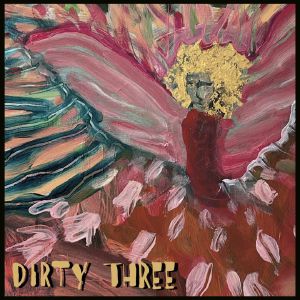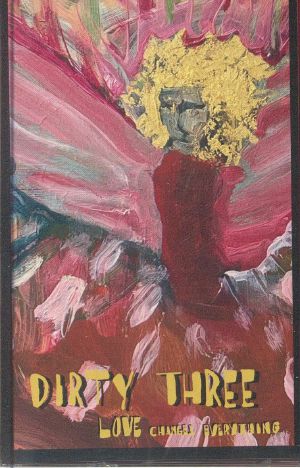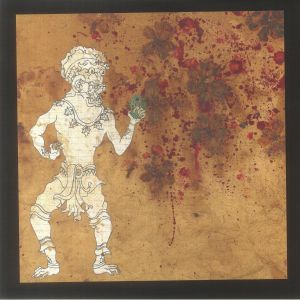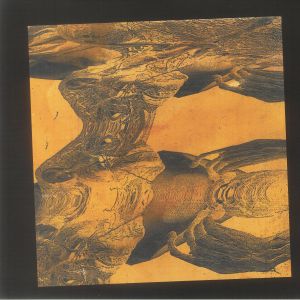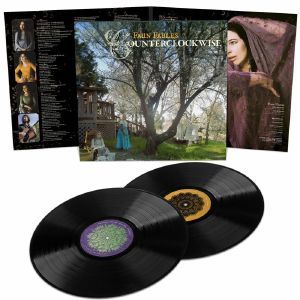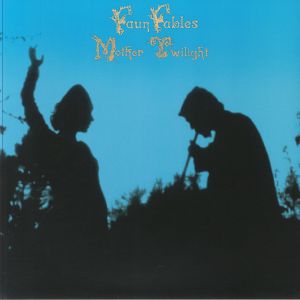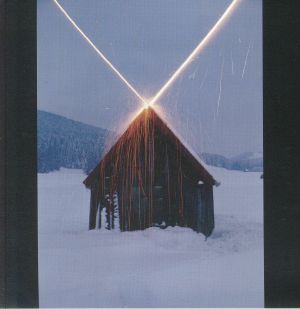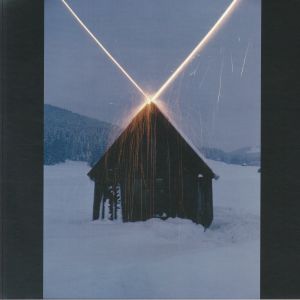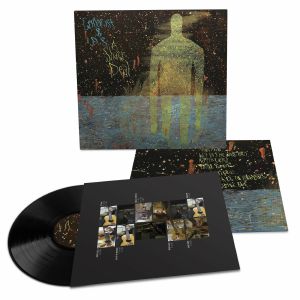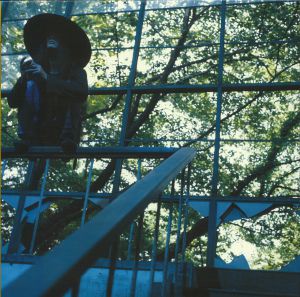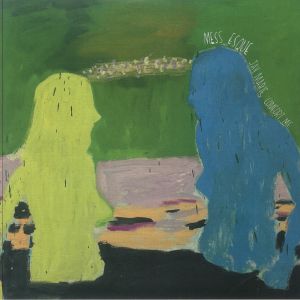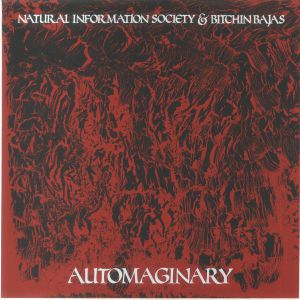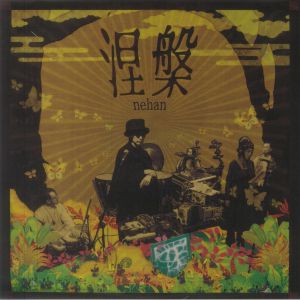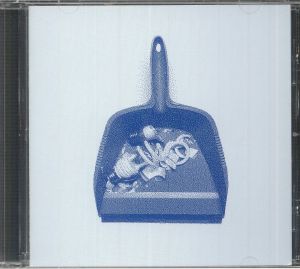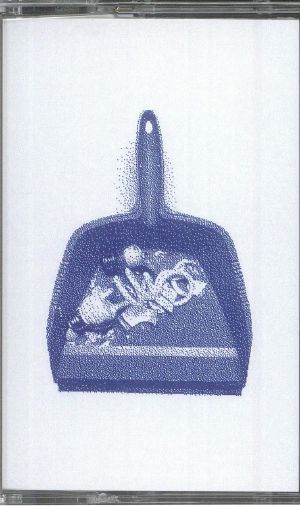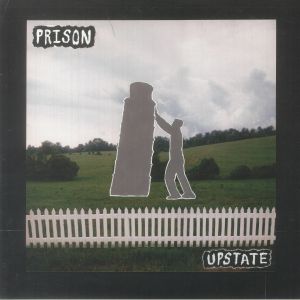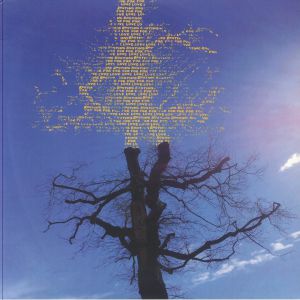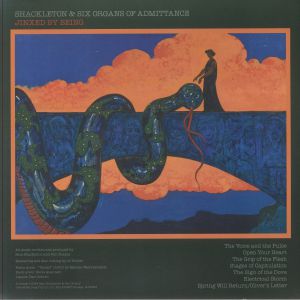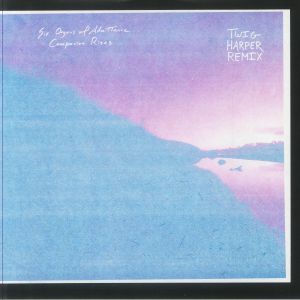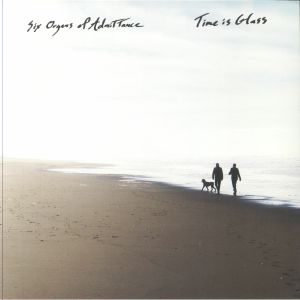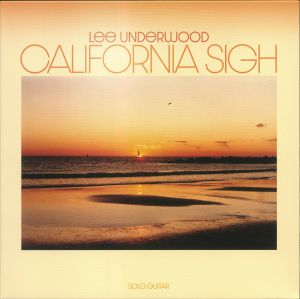Back catalogue: Post Rock/Experimental
Juno's full catalogue of Post Rock/Experimental
Singles
Cat: DC 907. Rel: 21 Nov 24
Review: In December 2001, at Maida Vale Studios, Bill Callahan's Smog delivered a raw, haunting session for the BBC. Alongside bandmates Jessica Billey, Mike Saenz and Jim White, Callahan's performance embodied a Lynchian mood of U.S. darkness in the wake of 9/11, covering Stevie Nicks, Lou Reed, and Smog tracks with a sombre, tour-worn edge. Callahan reflects, "It's all live, no overdubs. The session felt encapsulatedisomething foreign, yet intimate." The band's reimagining of 'Beautiful Child' in a minor key, the fiery rendition of 'Cold Discovery', and the moving take on 'Jesus' highlight the raw, unfiltered essence of this live recording.
… Read more in stock $26.61
Pillar Of Fire (10" (indie exclusive))
Cat: DC 617. Rel: 24 Apr 25
Review: Out of stoner rock miasma traipse David Eugene Edwards (Wovenhand, 16 Horsepower) and Al Cisneros (OM, Sleep) with two new sludge-offs, 'Pillar Of Fire' and 'Capernaum'. With leeward, mountainous horror vacui depicted on the front cover - and a 10" press signifying that the musicians intend for this to be a maestro's statement, not too invested in the magnanimity of a full LP and yet still knowing full well that you'll lap up the sense of terse completion such a record promises - these tracks are estivate delights, both their meditative experimental-bass workings evoking barren, anxious wanderlust.
… Read more in stock $29.16
Gebel Barkal (reissue) (limited translucent green vinyl 7")
Cat: DC 863. Rel: 04 May 23
Review: Few conversations or analyses surrounding doom metal can begin without mentioning the integral Sleep and their genre-defining opus Dopesmoker. That same analytical discussion cannot be rounded up without OM coming into the fray, as the duo of bassist Al Cisneros and drummer Chris Haikus originally worked together as Sleep's rhythm section. The hypnotic 'Gebel Barkal' single would serve as the final recording from the pair following the 2007 full-length Pilgrimage, before 2009's God Is Good would welcome the arrival of current drummer Emil Amos and signal the group's continued expansion into an eventual three-piece.
… Read more in stock $16.14
Albums
in stock $22.64
in stock $22.20
Played by: Juno Recommends Rock/Indie
in stock $27.16
Review: Drag City has reissued Dorothy Carter's 1976 debut album, Troubadour, a significant work in her folk music career. Known for her expertise on hammered dulcimer and psaltery, Carter's musiciinterweaving Appalachian, Celtic, Jewish, and her own compositionsiexudes a timeless, magical quality. This reissue not only revives her debut but also includes an insert with additional photos and notes by producer Eric Demby, recalling his childhood encounters with Carter's music. Troubadour captures Carter's eclecticism and her dedication to melding global musical traditions. The album opens with the medieval French instrumental 'Troubadour Song' and ventures through a variety of folk traditions, including an enigmatic rendition of the Scottish ballad 'The Twa Sisters' and a vibrant Psalm 100 in 'Make a Joyful Sound.' Carter's approach blends Eastern and Western influences most strikingly on 'Tree of Life,' hinting at the spiritual fusion she would explore further in her later work. With tracks like the Israeli folk song 'The King of Glory,' Michael Praetorius' 'The Morning Star,' and Appalachian standards 'The Cuckoo' and 'Shirt of Lace,' the album is a profound exploration of folk traditions. This reissue, presented in its original format with enriched visuals and historical context, offers a deep dive into Carter's visionary artistry, capturing the essence of her early, transformative work. Essential listening for fans of Michael O'Shea, Laraaji, and Jerusalem in My Heart.
… Read more in stock $31.99
Cat: DC 902. Rel: 27 Jun 24
Review: On The Key, New York drummer and all-round prolific sound generator Chris Corsano offers an acute glimpse into his live performance style. Aside from this evidently idiosyncratic solo approach - on full display here - Corsano also sought another level on The Key, plucking away at the many possibilities of a self-made string drum. The result is a free-improvised extravaganza, elseways one that hardly *sounds* improvised (yet we know it is), perhaps by sheer virtue of its progressive grandeur and singular sense. The mood is whimsical verging on capricious, with confounding titles like 'Unlike An Empty Box' and 'I Don't Have Missions' hinting at a postmodern jest baked into both the artist's personality and musical style, but the music is otherwise towering, cohesive, Babylonian; pree, for example, the flow-static climax that gives rise to suspended guitar solo on 'The Full-Measure Wash Down'.
… Read more in stock $24.23
Love Changes Everything (LP in spot-varnished sleeve)
Cat: DC 918. Rel: 06 Aug 24
Review: The Dirty Three's long-awaited return with Love Changes Everything sees the Melbourne instrumental band resurfacing with their trademark blend of mercurial energy and contemplative mood. Warren Ellis, Mick Turner, and Jim White effortlessly traverse from fury to ambient, displaying their strong abilities on guitar, drums, and violin/viola. The lead single, 'Love Changes Everything I,' storms in with razor-edged viola and raucous instrumentation, reminiscent of the band's indie roots. Yet, the album also explores moments of wariness and patience, weaving through loops and transcendental passages. While each member has pursued individual projects, their reunion heralds an exhilarating convergence of their distinct musical paths. With a career spanning over three decades, the Dirty Three continue to wow with their raw, emotive soundscapes cementing their status as one of the most innovative and enduring acts in the indie scene.
… Read more in stock $29.43
in stock $16.14
in stock $16.70
Improvisations I
Improvisations IV
Improvisations V
Improvisations II
Improvisations VII
in stock $31.99
in stock $23.77
in stock $37.08
in stock $33.96
in stock $26.23
Review: We Have Dozens of Titles by Gastr Del Sol is a treasure trove for fans, offering a glimpse into the experimental post-rock pioneers' journey from their Bastro roots to their groundbreaking work as Gastr Del Sol. This collection, curated from their 1993-1998 recordings, shows their evolution into sonic explorers, pushing the boundaries of post-rock with influences from musique concrete and free improv. The unearthed CBC recording from Festival International de Musique Actuelle de Victoriaville in 1997 is a highlight, featuring ethereal versions of familiar tracks like 'The Seasons Reverse' and 'Blues Subtitled No Sense of Wonder.''The live rendition of "Onion Orange' is a revelation, with Jim O'Rourke's kosmische synth waves intertwining seamlessly with David Grubbs' intricate guitar work. Additionally, the inclusion of rarities like 'The Harp Factory On Lake Street' and tracks from various compilations adds depth to the collection. Each track, whether a live performance or a studio recording, has been meticulously mastered or remastered by O'Rourke, enhancing the listening experience. We Have Dozens of Titles not only fills in gaps in Gastr Del Sol's discography but also exemplifies their innovative approach to music-making.
… Read more in stock $31.15
Review: Gastr del Sol might have gone their separate ways some 25 years ago, but they have recently taken the time to dig back into their fine archives. As a result they now serve up an alternate view of their superb, boundary breaking and genre busting run between 1993 and 1998 with a title box set, We Have Dozens Of Titles, on Drag City. Returning like a reverberating bolt from the blue, this album reignites the essence of the group and immerses listeners back into the whirlwind of their transformative era. It comprises previously uncaptured studio recordings and meticulously preserved unreleased live performances that all offer a captivating glimpse into the band's journey.
… Read more in stock $75.31
in stock $25.48
Second Time Around (reissue) (heavyweight blue vinyl LP + insert)
Cat: DC 128. Rel: 22 Feb 24
in stock $28.88
Review: You might remember David Grubbs from Squirrel Bait, Bistro, or Gastr de Sol. Codeine, The Red Krayola, Bitch Magnet or The Wingdale Community Singers. New wave or punk. His own output or that of the label he runs, Blue Chopsticks. Whatever reference rings truest, the American composer, guitarist, pianist and vocalist is an enigma responsible for a broad back catalogue of credits, projects, experiments and other. Whistle From Above lands in February 2025 and immediately proves Grubbs' continued genius and refusal to sit still. According to the limited information we have, he began developing these new guitar pieces - best described as somewhere between Fender drone, ambient noise, and musique concrete - following "months of shutdown woodshedding" in which he became "reinvigorated". What resulted was a deep dive into some personal solo arrangements and opportunities to engage with fellow sonic explorers - Rhodri Davies, Andrea Belfi, Nikos Veliotis, Nate Wooley and Cleek Schrey.
… Read more in stock $27.75
in stock $13.58
Played by: Juno Recommends Rock/Indie
in stock $25.48
in stock $32.27
Totality (LP in embossed-sleeve)
Cat: DC 860. Rel: 24 Apr 25
Review: A second joining of forces from two celebrated Chicago acts, blending deep, organic rhythms with a minimalistic electronic pulse. With the novel but logical addition of Jason Stein on bass clarinet, the collaboration stretches even further, pulling together the spiritual fluidity of Natural Information Society and the electronic minimalism of Bitchin Bajas. The first single, 'Clock no Clock,' is a deep dive into hypnotic rhythms, with guimbri grooves intertwining seamlessly with electronic bursts, flutes and organs. The other three tracks are equally compelling, the music unfolding like a living organism, constantly shifting but always grounded. Expansive, intricately woven sonic delights.
… Read morePlayed by: Juno Recommends Rock/Indie
in stock $32.83
Automaginary (reissue) (LP in screen-printed sleeve)
Cat: DC 626LP. Rel: 01 Mar 23
in stock $27.16
in stock $39.07
in stock $12.18
in stock $12.75
Review: A one-of-a-kind record from a one-in-a-million "state-of-mind jam band", Upstate by Prison hears five guys, four vocals and three guitars melded together in a craft that runs on its own rock & roll synergy. A self-perpetual psychosonic release, the LP consists only of five 15 to 20-minute long jam pieces, all of which seem to endlessly revel in caterwauling, hooting, Wahhing, and droning, ultimately beating the horse of contemplative psychedelia to death until both a heightened state of consciousness and a renewed music-making praxis is achieved. Sure, it goes too far! How the hell else you gonna get Upstate?
… Read more in stock $39.63
in stock $29.19
in stock $33.13
Review: Jinxed By Being see Shackleton and Heather Leigh continues the run of great music initiated by their previous collaboration, Flesh & The Dream LP, this time enlisting the talents of Ben Chasny aka Six Organs of Admittance, resulting in a genre-bending masterpiece that seamlessly blends haunting mantras, tangly riffs and sub-heavy rumbles. Chasny's cosmic folk jangling intertwines with Shackleton's illusory, ritualistic rhythms, creating a sonic landscape reminiscent of Talk Talk, Sun City Girls, Comus, and Kluster. The album, influenced by the New Weird America movement, sees Chasny's fingerpicking immersed in Shackleton's fractal treatments, resulting in a hypnotic fusion of acoustic and electronic elements. Tracks like 'The Grip of the Flesh' and 'Stages of Capitulation impress, with Chasny's spectral vocals and manipulated guitar blending seamlessly with Shackleton's atmospheric basslines and dreamy keys. Jinxed By Being defies categorisation, offering a fresh direction for progressive psychedelic music, whether folk, rock, or electronic.
… Read morePlayed by: Alexis Le-Tan
in stock $33.40
Cat: DC 891. Rel: 26 Sep 24
in stock $23.89
Review: Six Organs of Admittance is the main project of the American guitarist Ben Chasny. His music is widely considered new folk but he operates differently to most, infusing various sounds like chimes, percussive elements and layered drones and here features nine new songs that explore a strictly more soundtrack approach than anything he's done before. The result is riveting, with tracks like 'Summer's Last Rays' busy tonal compositions where multiple instruments and percussion blend together to a triumphant crescendo. Whether something left on in the background and absorbing your full attention, this works well and the evolution of the band's sound is exciting. With over 25 albums to their credits, this may be their most experimental and groundbreaking yet.
… Read more in stock $17.33
in stock $27.48

 USD
USD




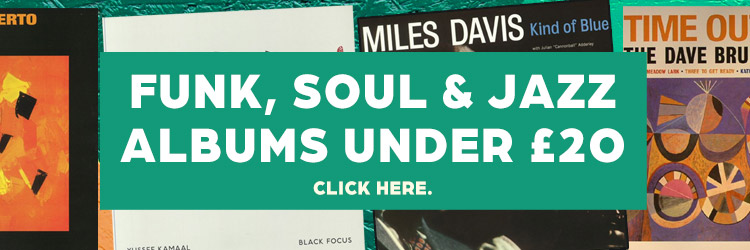
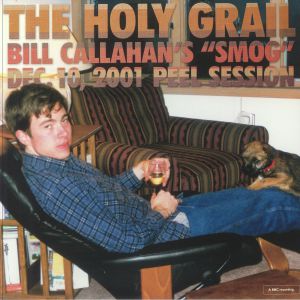
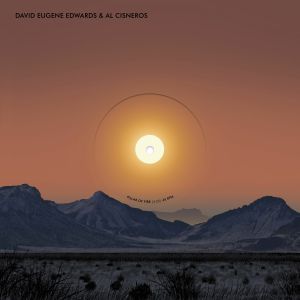
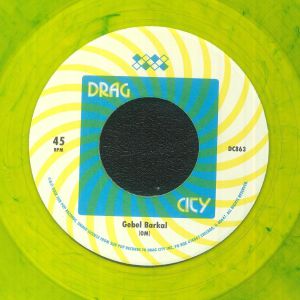
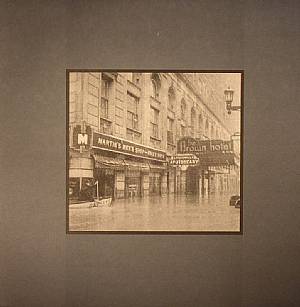
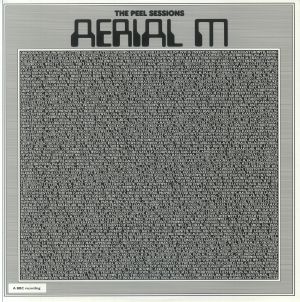

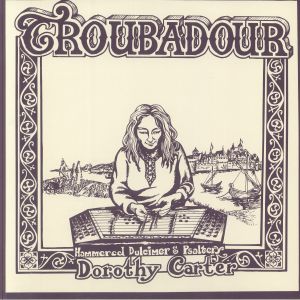
![The Key (Became The Imporant Thing & Then Just Faded Away]](https://imagescdn.juno.co.uk/300/CS1020149-01A-MED.jpg)
